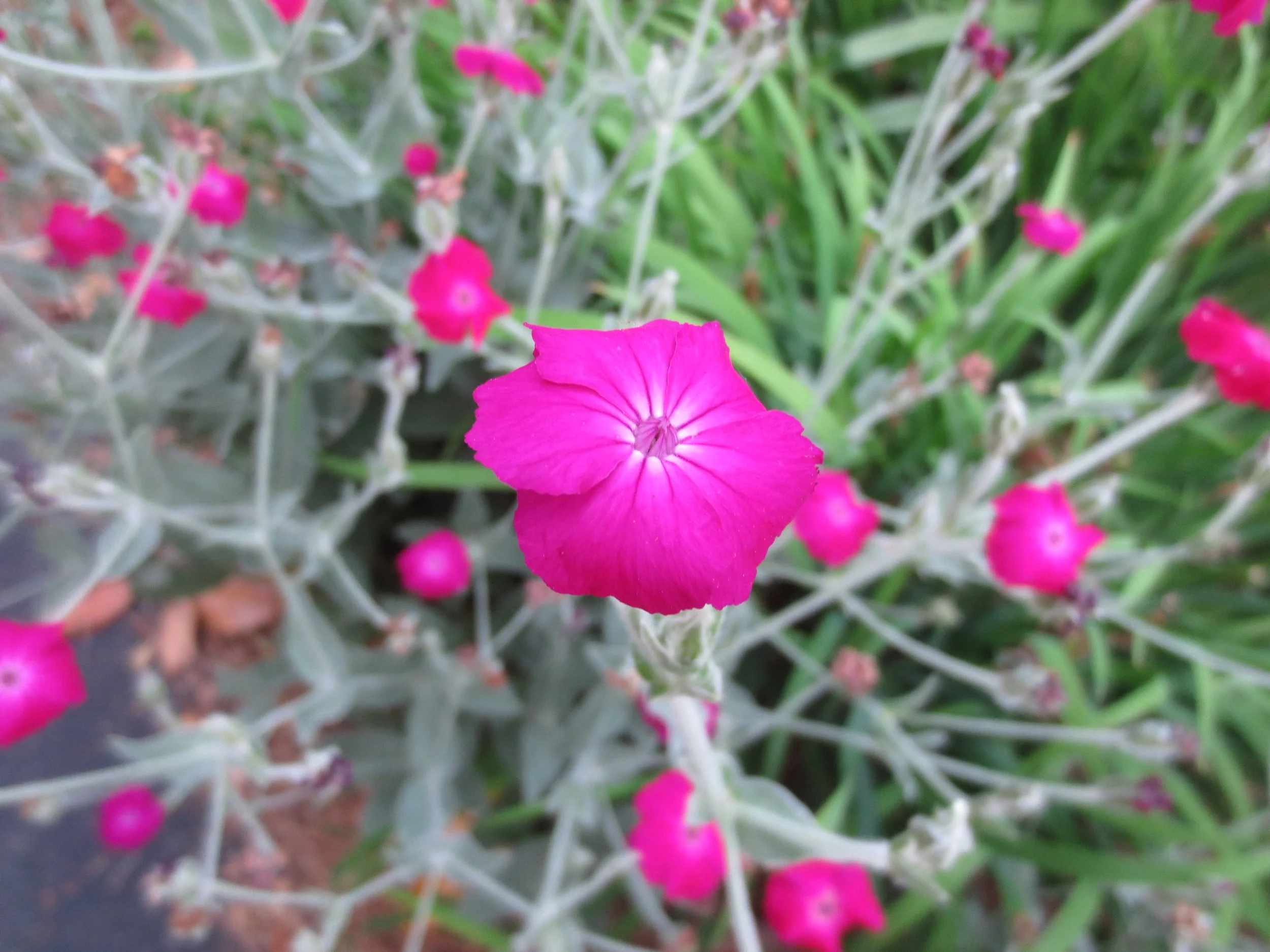In the midst of drab winter, I value anything hardy enough to send up colorful blooms. Such is the case with Hardy Cyclamen. Cyclamen coum are tuberous perennials, cold hardy in zones 6-9. These short plants are perfect for rock gardens, woodlands, containers, or scattering through partly-shaded beds. Plants go dormant during summer months. Because of their small stature, they show best when planted in groups.
Please note, we are talking the species purpurascens, coum or hederifolium here, not Cyclamen persicum, those gorgeous but finicky flowers from florists. I can usually kill those in about six weeks, although two weeks is my record. There is disagreement over the correct pronunciation of the genus, with some insisting on SIGH-cluh-men and others preferring SICK-luh-men.
Cyclamen’s delicate appearance would lead one to believe they are difficult to grow . Not so. My start came from a friend who discovered a drift behind her new home. They were growing happily in loose leaf litter, with the bulbs barely covered. Some even sat atop the humus, with only their roots extending into soil. She shared a few bulbs with me. In four years, they have multiplied into a couple of healthy clumps. I have not irrigated or fertilized them, but have adjusted their soil pH with lime to barely alkaline. In the Mary Snoddy garden, they coexist with hostas, acanthus and Ajuga ‘Black Scallop’ under spotty shade cast by Crape Myrtles and pine trees.
Flower stems are shaped like shepherd crooks, so the top of the flower points to soil, not sky. Both flowers and leaf patterns are highly variable between different species. All forms of the leaves have beautiful designs in silver, darkest green or burgundy.
Cyclamen prefer partial shade cast by trees. Too much rain or irrigation in summer, when the bulbs are dormant, can lead to rot. Plants will self-seed, so be careful not to overdo the mulch around them. They are rarely bothered by diseases, insects or varmints.
Cyclamen were used medicinally in ancient times for various purposes including love potions or to make bald heads re-grow hair. Now we know that raw bulbs are highly toxic and can cause severe digestive upset or even death. Flower petals can be used to brew tea. Play it safe and stick to Lipton.
Tubers should be planted in autumn. Purchase your bulbs only from reputable vendors (shout out here to Brent and Becky’s, a bulb catalog company in Gloucester, VA and Plant Delights Nursery in Raleigh, NC). Unethical sorts have collected bulbs from the wild until they approach extinction.

